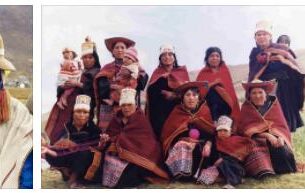ECONOMY
Business etiquette
Appointments and business cards are common. Argentine business people prefer to negotiate with an equal interlocutor, personal contacts are highly valued during negotiations and business meetings usually start ten to 15 minutes later than planned. All brochures are in Spanish, but some business people also speak English or Italian.
Buenos Aires
appointments and business cards are common. Argentine businesspeople prefer to negotiate with an equal partner; foreign visitors are expected to be punctual. All brochures are in Spanish, but some business people also speak English or Italian.
Opening hours
Business hours: Mon-Fri 9 a.m.-12 p.m. and 2 p.m.-7 p.m. Saturdays until noon. Some shops open later and have longer opening times.
Economy
Cámara de Industria y Comercio Argentino-Alemana (German-Argentine Chamber of Commerce)
Av. Corrientes 327, piso 23, C1043AAD AR-Buenos Aires
Tel: (011) 52 19 40 00.
Internet: www.ahkargentina.com
Latin American Chamber of Commerce in Switzerland
c / o DPS Communications
Gessnerallee 28, CH-8001 Zurich
Tel: (044) 272 08 52.
Internet: www.latcam.ch
Cámara Argentina de Comercio (Argentine Chamber of Commerce)
Avenida Leandro N. Alem 36, C1003AAN AR-Buenos Aires
Tel: (011) 53 00 90 00.
Internet: www.cac.com.ar
Business contacts
Cámara de Industria y Comercio Argentino-Alemana (German-Argentine Chamber of Commerce)
Av. Corrientes 327, piso 23, C1043AAD AR-Buenos Aires
Tel: (011) 52 19 40 00.
Internet: www.ahkargentina.com
Latin American Chamber of Commerce in Switzerland
c / o DPS Communications
Gessnerallee 28, CH-8001 Zurich
Tel: (044) 272 08 52.
Internet: www.latcam.ch
Cámara Argentina de Comercio (Argentine Chamber of Commerce)
Avenida Leandro N. Alem 36, C1003AAN AR-Buenos Aires
Tel: (011) 53 00 90 00.
Internet: www.cac.com.ar
COMMUNICATION
Phone
Public telephones can be used with calling cards or with telephone tokens (available at kiosks or from telephone companies). There are also some coin-operated telephone booths. There are also telephone centers called locutorios in most cities.
Cellphone
GSM 850/1900 and iDEN. Network operators include Telecom Personal (Internet: www.personal.com.ar), Claro (Internet: www.claro.com.ar) and Movistar (Internet: www.movistar.com.ar).
Cell phones can be rented from Phonerental (www.phonerental.com.ar), among others.
Mobile phones must have a tri-band for GSM 1900 network technology. The transmission / reception range is good in most of the country, but there is usually no reception in remote areas such as in the mountains. Roaming agreements exist with some international telephone companies.
Internet
Internet cafés are located in locutorios (telephone centers) and in Internet cafés in all major cities. Many estancias and rural areas are cut off from both Internet and telephone connections. In contrast, wireless internet access is becoming more common in better hotels.
Post Office
Airmail shipments to Europe take 1 to 2 weeks on the move. The main post office (Correo central) in Buenos Aires (Sarmiento 151) is open Mon-Fri 8 a.m. to 8 p.m. and Sat 9 a.m. to 1 p.m.
Radio
Since the use of shortwave frequencies changes several times over the course of a year, it is advisable to contact Deutsche Welle customer service directly (Tel: (+49) (0228) 429 32 08. Internet: www.dw-world.de) to request.
CULTURE
Religion
90% Roman Catholic; 2% Protestants, Jewish and Muslim minorities.
Social rules of conduct
Manners: The usual forms of courtesy apply. Traditions should be respected. People address themselves as Señor or Señora or by their first name – Doña Maria is the name of the neighbor, Don Julio the baker. To greet friends, you kiss each other on the cheek. After a private invitation, it is considered polite to send the hostess a bouquet of flowers the next day. People queuing at bus stops, in front of cinemas, etc. – jostling in front is extremely unpopular.
Clothing: Casual clothing is appropriate almost everywhere; more elegant cloakrooms are only expected at official events and in exclusive restaurants. Correct clothing is expected when entering churches.
Smoking: In Buenos Aires and in some other Argentine cities, public transport, cinemas and theaters are non-smoking areas. In these cities, smoking is banned in all public spaces, including restaurants and bars. The only exceptions are cigar clubs and shops. Outdoors, e.g. Smoking is permitted, for example on balconies and terraces.
Alcohol: Although Argentina, a country located in South America according to cheeroutdoor, is known for its excellent wines, Argentinians drink significantly less alcohol than Europeans. In bars and discos, non-alcoholic beverages are often enjoyed and only a few are noticeably drunk.
Tip is common and 5 to 10% of the invoice amount is appropriate. In some hotels and restaurants, 25% service and 21% tax are added to the bill. Taxi drivers expect visitors to tip.
Government
Presidential democracy, Federal Republic since 1853. Constitution from 1994, last amendment 1997. Bicameral parliament: House of Representatives with 257 elected members and Senate with 72 elected members. After the constitutional amendment from 1994 to four years, the president is determined by direct elections. Independent since 1816 (from Spain).
COUNTRY DATA
Area code +54 Area (km2) 2780400 Population 43431886 Population density (per km2) 16 Population in 2015 Member of the EU No main emergency number 107




